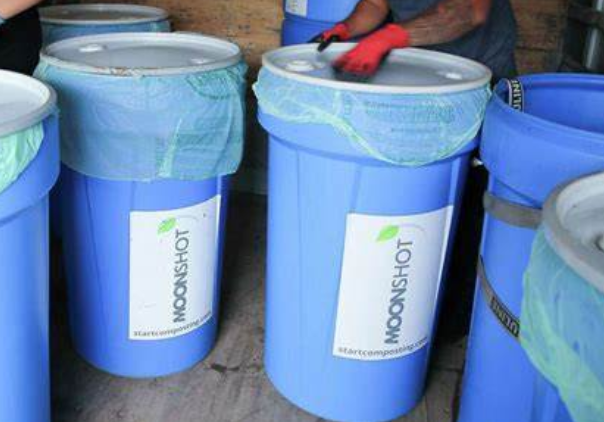Environmental Studies
Moonshot composting 2024 report
Southwestern is making waves in the world of composting – here’s what you need to know.
Open gallery

Currently in the Southwestern University dining hall, we are composting tons of food waste destined for the landfill, thanks to the efforts of Student Government, the S.A.F.E. Grant, and the Sustainability Committee. This effort shows Southwestern University’s Environmental Studies department dedication to world altering sustainability.
Carbon dioxide (CO₂) is a greenhouse gas that is naturally present in Earth’s atmosphere, it traps heat and keeps our planet warm enough to support life, however human activities like burning fossil fuels and deforestation have increased CO₂ levels, contributing to global warming and climate change. To mitigate these effects, it’s important to reduce the amount of CO₂ entering the environment. When organic waste decomposes in landfills it generates methane, another potent greenhouse gas. Composting is a simple way to helo, it diverts organic waste from landfills and converts it into nutrient rich soil. This method reduces methane emissions but also enhances the soil’s ability to sequester carbon.
Southwestern University is making significant strides in environmental conservation through its composting efforts thanks to the collaboration with Moonshot Composting. Using compost bins placed in the Mabee Commons cafeteria, Southwestern has successfully diverted an impressive 36,528 pounds of food waste from landfills. This initiative has elevated Southwestern University’s goals of sustainability, and highlights the power of SAFE grants, which fund the program. These grants are granted to projects that intend to support sustainability goals from wide reaching projects from free period products in restrooms, to composting, and free food for students.
By composting this substantial amount of food waste, Southwestern has prevented 24,690 pounds of carbon dioxide from entering the atmosphere. To put this into perspective, this is equivalent to the carbon sequestration achieved by 1,866 trees or the emissions from driving 28,026 miles by car. These figures show the real world impact that composting can have on mitigating climate change and illustrate Southwestern community’s commitment to sustainability.
The efforts in the Mabee Commons to reduce food waste and greenhouse gas emissions through collaboration with the Sustainability Committee, Bryce Steimert the project head, and Moonshot Composting underscore the importance of teamwork, and show that when we stand together in what we believe in, we can make tangible changes to the world we live in.














